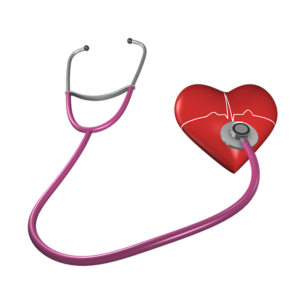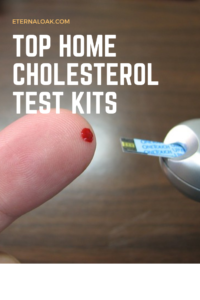Table of Contents
What Cholesterol Test Kits are FDA approved and why does this matter?
Currently there are 10 over the counter home test kits that the FDA has approved to measure cholesterol.
You can find the most current list by using the FDA’s Over The Counter (OTC) database search tool – https://www.accessdata.fda.gov/scripts/cdrh/cfdocs/cfIVD/Search.cfm
Simply type in “cholesterol” in the test name box and click search.
The 10 current home test kits are listed below.
- ACON Laboratories Inc., Mission Cholesterol Monitoring System {Mission Cholesterol Test Catridges}
- Tests Cholesterol
- Effective 07/14/2017
- ACON Laboratories Inc., Mission Cholesterol Monitoring System {Mission Cholesterol Test Cartridges}
- Tests HDL cholesterol
- Effective 07/14/2017
- ACON Laboratories Inc., Mission Cholesterol Monitoring System {Mission Cholesterol Test Cartridges}
- Measures Triglyceride
- Effective 07/14/2017
- Accutech CholesTrak HDL Cholesterol Home Test
- Measures HDL cholesterol
- Effective 01/08/2008
- Home Access Health Corporation accessa Cholesterol Panel Collection Kit
- Measures Cholesterol
- Effective 11/09/2007
- Home Access Health Corporation accessa Cholesterol Panel Collection Kit
- Measures Triglyceride
- Effective 11/09/2007
- Home Access Health Corporation accessa Cholesterol Panel Collection Kit
- Measures LDL cholesterol
- Effective 11/09/2007
- Home Access Health Corporation accessa Cholesterol Panel Collection Kit
- Measures HDL cholesterol
- Effective 11/09/2007
- Polymer Technology Systems CardioChek Analyzer {PTS PANELS HDL Cholesterol Test Strips}
- Measures HDL cholesterol
- Effective 04/10/2006
- Polymer Technology Systems CardioChek PA Analyzer {PTS PANELS HDL Cholesterol Test Strips}
- Measures HDL cholesterol
- Effective 04/10/2006
These come in the order from the FDA database, not necessarily in the order recommended. Later in the article I’ll explain some other factors that’ll help you decide such as which one’s are available easily on Amazon.
So what does it mean exactly that they are FDA approved?
In short it means the FDA believes the approved kits meet their standards for accuracy and reliability.
To get to that conclusion, the FDA compared the results from the test kits to clinical trials and found the test kits to be at least as accurate as the tests used by physicians and medical laboratories in the trials. The first cholesterol test kit was approved by the FDA in 1993 and involved a clinical trial of over 500 adults. That test appears to no longer be on the FDA approved list though so be sure to check the list before buying anything.
http://articles.latimes.com/1993-03-03/news/mn-248_1_cholesterol-test
How do these tests work?
First you prick your finger with a lancet and then soak up the blood using the test strip. The test strip has a small piece of paper that reacts with your blood and the color produced is relative to the amount of cholesterol present. The machine reads the color off the test strip and gives a numeric value for your cholesterol level.
It’s in this procedure, which generally sounds easy that mistakes are made. It’s easy to throw off the results if you squeeze too much blood out of your finger or apply too much to the test strip.
The FDA makes it clear that you have to follow the kit instructions very carefully to get an accurate result and if you do the result should be comparable to the tests they would do at your doctor’s office (i.e. the test kits they use at the doctor, not the full blood test).
What are the best kits on Amazon?
Only one kit appears to be easily available through Amazon – the CardioCheck. At first the reviews for this one on Amazon didn’t make it look so great but none of the cholesterol kits available on Amazon look great according to the reviews.
Does that mean these kits are bad?
There’s a difference between Amazon customers and a review of clinical trials by the FDA. One customer comparing their test kit to one set of lab results does not equal that same comparison done hundreds of times by the FDA.
Another factor – Cardiocheck is heavily present on Amazon and few of it’s competitors are. It wouldn’t still be there if it wasn’t selling and working.
Again, follow the instructions exactly to get good results. The FDA did the heavy work to thoroughly test these things and the “evil junk food lobbies” certainly aren’t in a hurry to back home cholesterol kits that people can use to see the effects of different foods they consume.
Where do I find the other test kits?
The other test kits are a bit harder to hunt down. They are generally available through specialty medical supply stores. You can find those online as well but for simplicity’s sake we only recommend CardioCheck since it’s both available easily on Amazon and it’s backed by the FDA.
What equipment do I need for the test?
This is key. I’ve bought cholesterol supplies on Amazon before and left unable to use them since I didn’t have everything you need.
You’ll need the following for pretty much all home test kits, but especially for the CardioCheck system. There are lots of listings on Amazon selling these things separately. Look for the listings that include them all together. Some of these things you can pick up at local pharmacies as well, like the lancets for pricking your finger.
- Lancets for pricking your finger
- Capillary tubes to draw the blood
- Test strips to apply the blood
- Home analyzer machine to read the test strip color and translate it into a numerical cholesterol value
Be warned that Cardiocheck sells all of the above either separately or as a full kit. You can get the full kit at this listing:
https://www.amazon.com/Cardio-Starter-Cholesterol-Analyzer-cholesterol/dp/B00408NZRS
You can buy lancets at any pharmacy. They are also used for home blood sugar tests by diabetics.
Be sure that the test strips and home analyzer machine are the Cardiocheck brand. The lancets can be generic.
Cardio check sells multiple types of test strips. Some measure total cholesterol, some measure triglycerides, some do HDL, and some do LDL. Be sure to check the listing to make sure you are getting the right one.
How much does it cost per test?
It depends on if you’re measuring total cholesterol, triglycerides, HDL, etc. They are roughly $6 per test ($32 for two boxes of three strips each which is about $5.34 each).
How often should I check my cholesterol?
According to the Centers for Disease Control (CDC), adults who do not have heart disease should get their cholesterol checked every 4-6 years.
https://www.cdc.gov/cholesterol/cholesterol_screening.htm
If you have heart disease check with your doctor on how often you should check.
If you are like me and you’re doing this as an interesting experiment to see which eating strategies (e.g. paleo, vegan, etc.) raise or lower cholesterol the most then you’ll probably want to check no more than once every 4 weeks.
It takes awhile to change your cholesterol so if you’re doing this to test different diets then you’ll need to be pretty consistent with that diet for at least 4-6 weeks between tests.
Again, follow the kits instructions. You’ll need to fast for 8-12 hours before doing the test so it’s best to do the test at the same time in the morning after sleeping and spread out those tests to no more than 4 weeks apart.

Total cholesterol, HDL, or LDL? What should I track?
This depends on your goals and which camp you follow.
According to the CDC, a total cholesterol level of less than 200 mg/dl is good.
https://www.cdc.gov/cholesterol/cholesterol_screening.htm
A popular level touted as the “heart disease free zone” is less than 150 mg/dl total cholesterol and ideally less than 122 mg/dl. This comes from intervention trial that found that men with total cholesterol levels lower than 122 mg/dl had the lowest death rates from coronary heart disease. The study was published in JAMA in 1982.
https://www.ncbi.nlm.nih.gov/pubmed/7050440
Others, especially those in the Paleo, Atkins, and other Low Carb, High Meat, High Saturated fat diet groups like to point out that LDL is the real problem and that it’s OK to have high total cholesterol as long as you’re LDL is low enough.
What’s low enough LDL?
An LDL level of 70 mg/dl appears to the be the level where coronary heart disease progression stops.
https://www.ncbi.nlm.nih.gov/pubmed/15172426
Is it possible to have an LDL below 70 but a total cholesterol above 150?
Total cholesterol is the sum of your LDL, HDL, and other lipids. Sadly, LDL levels are usually the higher of the two. The Mayo Clinic stated that doctors are looking at ratios of non-HDL (the good cholesterol) levels to total cholesterol as a better predictor of heart disease. They give the example of someone with a total cholesterol of 200 mg/dl and HDL of 50 mg/dl (which the CDC recommends as normal and the values to target) as having a ratio of 4:1. When you’re ratio goes up you have higher levels of LDL and a could have a higher risk of heart disease.
Following the 4:1 ratio above, if your total cholesterol was 150, your HDL would be 37.5 mg/dl and your LDL and other lipids would make up the rest (112 mg/dl). At best your LDL would be 70 mg/dl and other lipids would make up the rest putting you in the target zone.
So why would the government recommend total cholesterol levels of 200 mg/dl if that might not be the healthiest option?
They felt that general public would have difficulty maintaining a lower level. The reason for that was they felt that drug costs to maintain it would be exorbitant. They didn’t factor diet into it or assumed the public couldn’t maintain a cholesterol lowering diet.
Sources:
https://nutritionfacts.org/2016/12/13/whats-the-optimal-cholesterol-level/
http://circ.ahajournals.org/content/106/25/3143.short?rss=1&ssource=mfc
What’s the easiest way to lower cholesterol?
You can use drugs or diet. For our purposes we’ll focus on the diet options and let you cover the drug options with your doctor.
Regarding diet you’ll want to focus on the following three things:
- Cholesterol lowering meals
- Cholesterol lowering foods
- Foods to avoid

Details of the above will be found in a future article.
How else can I get my cholesterol tested cheaply?
For those that don’t want to draw their own blood or have concerns about the accuracy of a home test here are a few simple options to get your cholesterol tested locally for around $30 – $60 per test:
- Grocery store clinics – Grocery store pharmacies are starting to add local clinics that go beyond giving out flu shots. They frequently will test your blood for blood sugar levels, lipids, and more. Google “grocery store clinics near me” to find some and call for details.
- Walgreens or CVS clinics – Same deal as the grocery store clinics only these services have been around longer and they are more robust and common. Again, google “walgreens [or CVS or your local common pharmacy ] clinics near me”
- Local blood labs – This one is a bit trickier. These are the labs where local doctors send your blood to get the tests dones. Google “blood labs near me” and call the closest ones. Ask if they offer lipid panel tests for total cholesterol, LDL, and the other items you’re interested in. Ask also if they can draw the blood for the test there. Many can. You just have to call a few and ask.
Thanks for reading. We love you! Now share this pin!!!
